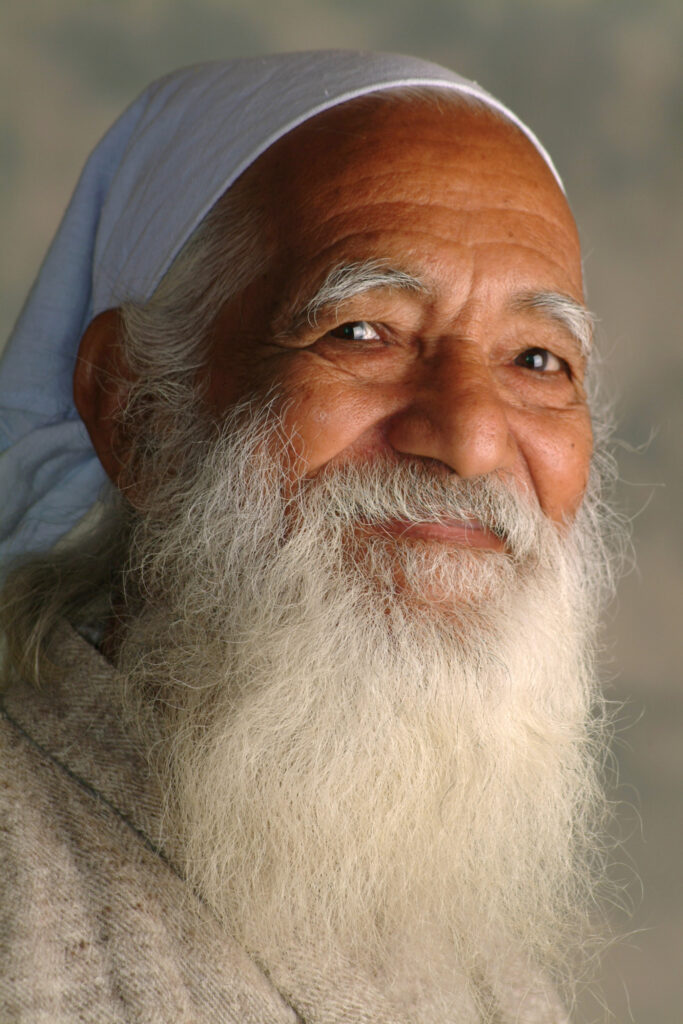
It is a tragic irony that the man who fought to provide a breath of fresh air to people lost his life struggling for oxygen amidst the pandemic. A pioneering environmentalist, Sunderlal Bahuguna, who taught Indians to hug trees breathed his last on May 21, 2021. Throughout his life, he led numerous environmental movements that gained momentum and spread worldwide. Let’s take a look at some of the most impactful work of the legendary activist.
Early Age
Born in Maroda village near Tehri, Uttarakhand, on January 9, 1927, Sunderlal Bahuguna was concerned about many social causes from an early age. When he was thirteen he started a campaign to spread the message of non-violence, under the leadership of Dev Suman who was a national activist and a follower of Gandhi’s philosophies. Like his leader, Sunderlal and his wife, Vimla, also lived by Gandhian principles. In fact, Vimla married Sunderlal on the condition that the two would live in the rural area, establish an ashram there and dedicate their lives to educating and empowering the people of the village. Before 1947, the couple educated people to stand up against colonial rule. Over the years, they also fought against untouchability and encouraged rural women to participate in the anti-liquor drive.
The Chipko Movement
Until the 1970s, forests continued to be viewed as commodities. This was an idea that had passed down from colonial times. The contract felling of trees and massive deforestation for development had led to severe devastation of the mighty Himalayan mountains. A few villagers noticed and reported their concern to the local government authorities. Though there were many such small groups, they were far apart and unaware of each other’s plight.
Sunderlal and his wife took this issue upon themselves. Torchbearers of peaceful non-cooperation, the couple educated the villagers about the importance of trees in maintaining the ecology. Sunderlal expressed his love and care for mother nature by hugging trees and encouraged the people of Chamoli district to do the same. This resulted in a unified mass forest conservation movement, which went down in Indian history by the name of the Chipko Movement. Chipko literally translates to ‘hug’ or ‘embrace’.
Late 1946 was a turning point in the movement when the government announced an auction of 2,500 trees overlooking the Alaknanda River. Agitated villagers were determined to protect their forests at the cost of their lives. Implementing the most powerful Gandhian tool, Satyagraha, the villagers formed human chains and encircled the trees. When the loggers arrived with their machinery to cut the trees, the villagers embraced every possible tree, forcing the loggers to give in.
The Resounding Success
There were a number of reasons behind the success of the Chipko movement. Sunderlal resorted to the influential tools of non-violence and non-cooperation, which were easy to adopt and practice. He incorporated folk songs to spread awareness.
His slogan, “Ecology is permanent economy,” resonated with the masses.
The agrarian women were at the forefront of this movement. Formidable leaders like Suraksha Devi, Bachni Devi, Virushka Devi, Sudesha Devi, Chandi Prasad Bhatt and Gaura Devi, among others, played a vital role in unifying the village women and encouraging them to confront the government through their resilience.
The villagers understood the impact that deforestation had on their livelihood and on the environment as a whole. They became aware of the forest rights and conservation laws which, until then, were only hidden in the books. The movement unveiled the influence of mass activism in modifying and defining new conservation laws. Sunderlal’s efforts led to a ban, under certain conditions, on commercial felling of trees in 1981. For its dedication to the conservation and restoration of India’s natural resources, the Chipko Movement was awarded the ‘Right Livelihood Award’ in 1987.
The Fight Continued And Still Continues
The success of the Chipko movement was merely a start to a long-drawn battle against many authorities and ignorance. In 1984, Sunderlal marched from Kashmir to Kohima on foot, covering a distance of about 4,800 km, to call attention to the deteriorating state of the fragile ecosystems of the entire Himalayan region. He collected a detailed report of the region through this padayatra (foot march) and submitted his findings to the United Nations.
Sunderlal campaigned against the mega-project of Tehri Dam on the river Bhagirathi through numerous hunger strikes. The project did not pay any heed to the devastating impact it would have on the environment and on the relocation of the displaced population. Most of his hungry strikes lasted over four weeks. He undertook one of the longest fasts after Indian independence. Despite two decades of relentless efforts, he only received false promises and the dam activities were resumed in 2001. This led to him refusing the Padma Shri in 1981. He was later awarded the Padma Vibhushan in 2009.
Until his last breath, Sunderlal fought and encouraged others to fight for mother earth. His legacy will continue to inspire millions in the years to come. Here is a letter he once wrote to his friends who worried for his life. The letter beautifully encompasses the true meaning of his life:
“Himalaya is a land of penance. Nothing in the world can be achieved without penance. I am doing this on behalf of all who are striving to save our dying planet. Why should a river, a mountain and forest or the ocean be killed, while we cling to life?”
By Komal Narwani. More stories at https://www.amarchitrakatha.com/
Detailed obituary at https://india.mongabay.com/2021/05/obituary-sunderlal-bahuguna-end-of-an-era-for-indian-environmentalism/
Special story at https://www.thehindu.com/news/national/other-states/sunderlal-bahuguna-simply-extraordinary/article34615794.ece
Pic courtesy: https://rightlivelihood.org/
Right Livelihood is a courage-powered community for social change, committed to peace, justice and sustainability for all.
